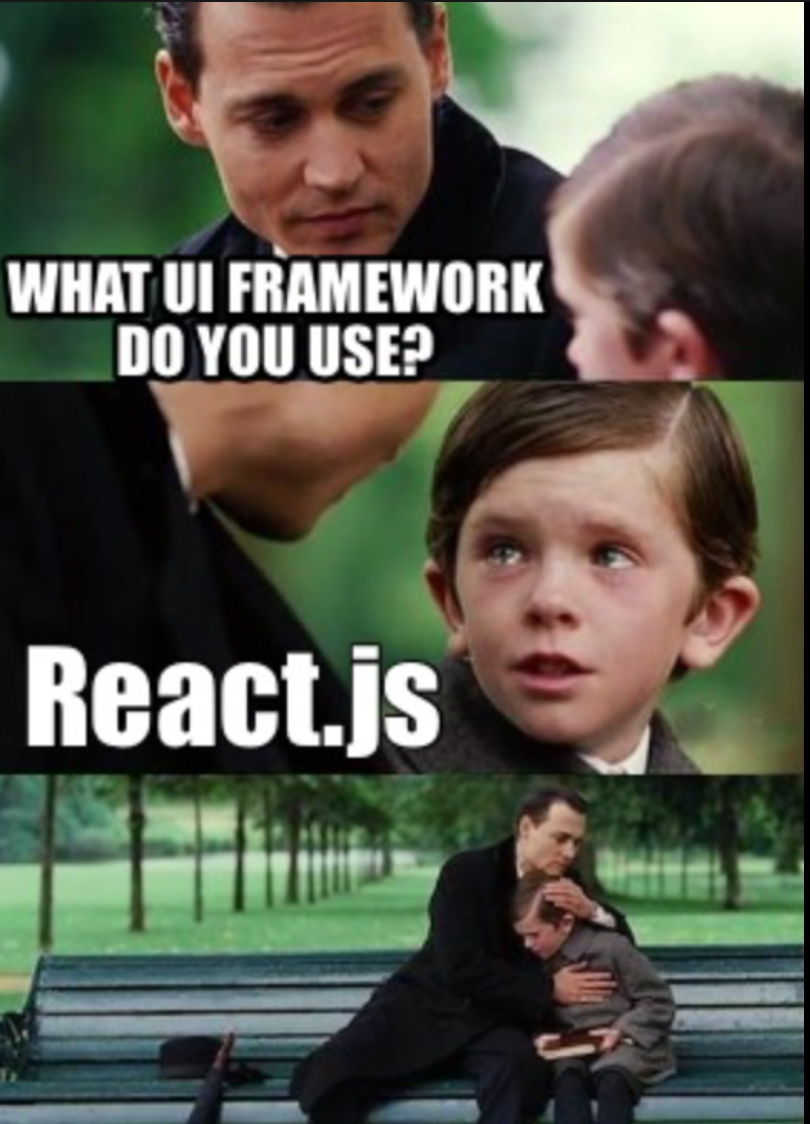Is it truly possible to write effective code in ReactJS? Is the current development process sufficient or should it be modified? And what techniques can improve our ability to write ReactJS code?
Developing efficient and effective code lacks the rigorous review process of more thoroughly understood languages. While ReactJS is a relatively newer tool developers must work with, it does provide helpful features to code more effectively. To date, the debate around how best to utilize it to write efficient code is ongoing, but recent research has yielded consistent results. According to a study published by the Software Engineering Institute, ReactJS programmers who review code with peer pairs reported substantially fewer lingering errors in their solutions. Additionally, a development team survey conducted by the University of South Carolina found that by the end of a given development cycle, 90% of ReactJS code utilizes more advanced techniques that enable more thorough data-driven programming.
In this article, you will learn the different ways to write code effectively using ReactJS. We will look at techniques, such as peer code reviews, version control systems, and good coding practices, which can lead to improved, high-quality code. We will also discuss various tools that can streamline the process and help develop code more quickly and reliably.
Through exploring this article, readers will gain an understanding of how to efficiently develop code in ReactJS, as well as strategies for increasing code readability and improving the process of code re-use. Finally, we will consider the steps needed to ensure the accuracy of ReactJS code and how we can use analytics methods to detect coding errors.

Definitions
ReactJS: ReactJS is a JavaScript library created by Facebook for creating user interfaces. It is based on the ‘reactive programming’ model, which allows developers to create interactive websites and web applications quickly and easily.
Effective Code Writing: Effective code writing in ReactJS involves breaking down complex problems into small, manageable components and ensuring that each component is well-structured and organized. It is also important to use best coding practices, such as using descriptive variable names, avoiding repetition, and commenting code when necessary.
When using ReactJS, developers must take care to ensure that their code is written in a way that allows for easy refactoring and updating as needed. When structured correctly, React code can be easily customized to fit specific needs and requirements, which can drastically improve its utility and effectiveness.
Furthermore, it is important to consider the performance impact of code when writing in ReactJS. As React is heavily reliant on JavaScript, it is possible to write code that is poorly written and slows down the program. Good coding practices must be followed to ensure that code runs quickly and efficiently.
Overall, writing effective code in ReactJS requires maintaining good coding practices and ensuring that code is laid out and organized in a manner that makes it easy to read and understand. This will help to maximize the efficiency of the code and ensure that it is able to do what is needed as quickly and efficiently as possible.
ReactJS: Optimize Your Code for Maximum Efficiency
ReactJS is a powerful open-source JavaScript library used for developing user interfaces and building modern, interactive web applications. With its simple concept and minimalistic approach, ReactJS has become a popular choice among web developers. However, creating code in ReactJS is not an easy task and requires a lot of focus to ensure the code is efficient and achieves the desired results. To help developers optimize their ReactJS code for maximum efficiency, there are few essential tips to consider.
Target an Audience
The main purpose of ReactJS is to create user interfaces, which means the target audience should always be the top priority. Taking into account user preferences and expectations is essential when creating code. Designing interfaces to match user needs improves the overall experience.
Break Down Components
In ReactJS, components are the building blocks of a web page and they need to interact with each other in order to produce the desired results. To this end, separating components into smaller, more manageable pieces helps optimize code and allows changes to be made more easily.
Write Clean Code
ReactJS code should be readable and organized for future use. Proper indentation, having descriptive variable names, and using comments where appropriate helps write clean code and improves the overall performance of the website.
Optimize the Rendering Process
ReactJS uses the virtual DOM which needs to be managed in an efficient way. Using the right components and limiting unnecessary re-renders can speed up the process and make the web page perform better.
Optimize Performance with Checklist
Testing and optimizing the website’s performance can often seem daunting and is time consuming. A checklist of optimization techniques such as minifying code, compressing images, and using CDNs can help streamline the process and maximize performance.
Implement Caching
Caching allows data to be stored temporarily in a web browser’s memory so the same information does not need to be loaded anew every single time. Implementing caching techniques such as data caching, partial page caching, and dynamic page caching helps optimize the website’s performance.
Optimize Code with Tools/Libraries
Using the right tools and libraries can help improve code performance and quality. Libraries such as Redux and MobX can be incredibly helpful with state management and memory optimization. Additionally, using services like Webpack can minimize code bundles and make them more efficient.
By following these tips and techniques, developers can ensure their ReactJS code is of high-quality and efficiently optimized. Taking the time to optimize code doesn’t just improve website performance, but also allows developers to create better user experiences.
Reduce Code Complexity in ReactJS
Strategies for streamlining code in ReactJS
One of the most inspiring challenges of working with ReactJS is reducing code complexity and finding effective ways to streamline code production. With its flexibility and power, it can be easy to get carried away and add large amounts of nested and redundant code, which can lead to a slower application. The best way to reduce code complexity in ReactJS is to take a systematic approach, breaking down the task into logical and manageable parts, and focusing on each part as a standalone task.
Focusing on performance
Making sure that the ReactJS application runs efficiently and at the highest possible performance should be the goal of every application developer. Each component should be broken down and considered on its own, aiming to minimise the amount of Processing Power, Memory, and Time that the application needs to function. Simple steps like using better logic, making fewer network requests and allocating resources smartly can generate huge performance benefits for the application.
Adopting coding best practices
Using best practices for coding in ReactJS can reduce code complexity and provide a consistent level of readability for the application. Thinking through and building the application architecture first, using components effectively, and following the best coding standards for ReactJS are all methods that help to diminish the amount of code needed for the application. Sticking to an organized code structure also amplifies the level of power that ReactJS offers and ensures that the application runs smoothly.
The key to reducing code complexity in ReactJS is to always have a plan in place, to use the power of logical reasoning and abstraction in order to reduce code duplicates and tedious tasks. Keeping components reusable and focusing on performance are just two of the key approaches that should be taken to reduce code complexity and increase the speed of the application. What other ways can be used to simplify ReactJS code?
Unlock the Power of ReactJS Syntactical Simplicity
Unlock the Power of ReactJS Syntactical Simplicity
Understand the Basics
ReactJS is a popular and powerful JavaScript library designed to enhance the functionality and flexibility of user interfaces. It is widely used to build single-page applications, mobile applications, and web applications. With its vast array of features and tools, developers can not only create complex applications but also use ReactJS syntax to make coding simpler and more efficient. But how does one truly unlock the full potential of ReactJS?
To accomplish this, developers must begin by understanding the basics of ReactJS syntax. Syntax simply refers to the structure of a programming language – the rules and conventions that define how a language is written and used. Although ReactJS is a JavaScript library, its syntax provides a few extra features, such as JSX, that make it easier for developers to use. JSX allows developers to write HTML and JavaScript directly within their ReactJS code, eliminating the need for separate HTML and JavaScript files and allowing for rapid application development.
Use Syntactical Techniques
While understanding the basics of ReactJS syntax is important, simply understanding it is not enough. To gain maximum efficiency, developers must also learn how to use syntactical techniques. Techniques such as modular code splitting, functional components, and props allow developers to write simpler, cleaner, and more efficient code, resulting in faster development times and better user experiences.
Code splitting, for example, allows developers to divide their application’s code into smaller modules, making it easier to debug and maintain. Additionally, using functional components reduce the amount of code required to render components, making it easier for developers to employ code reuse. Lastly, props allow developers to pass data between components by utilizing JavaScript Objects, Attributes, and Functions.
Master ReactJS Syntax
In the end, the more developers understand and use ReactJS syntax, the more they will be able to explore its vast potential. Mastery of ReactJS syntax enables developers to use more efficient coding techniques, resulting in shorter development cycles and better user experiences. By familiarizing themselves with the basics and utilizing the power of ReactJS syntax’s techniques, developers can unlock the full potential of ReactJS syntax and create simpler, cleaner, and more powerful code.
Conclusion
Writing ReactJS code effectively can be a daunting task for many developers. It is a task that requires a clear understanding of the underlying principles and the ability to think strategically about coding patterns. That being said, there are some key strategies and tools that can help developers to maximize their effectiveness when coding in ReactJS. The question then becomes, how can these strategies be utilized to ensure the best possible results?
Would implementing an agile methodology when developing ReactJS code lead to better results? Agile methodologies have become popular in recent years due to their focus on iterative development and the ability to quickly push out new features and updates. By following agile practices, teams are able to move faster and build performance into the development process, rather than waiting for an entire release cycle to be completed.
Ultimately, the key to effectively writing ReactJS code comes down to understanding the design principles and leveraging the right resources. Developers should make sure their team is equipped with the tools and training necessary to stay ahead of the curve. Additionally, they should keep a close eye on the open source tools and libraries that are available in the React landscape, as they can provide invaluable guidance. Following a blog like this one can help to stay up to date with the latest trends and best practices in ReactJS development and provide readers with the knowledge they need to be successful. If you’re interested in exploring the world of ReactJS and maximizing your code’s effectiveness, keep an eye out for more great content coming soon.
F.A.Q.
Q1: What is ReactJS?
A1: ReactJS is an open-source JavaScript library for building user interfaces. It is widely used to create single page applications (SPAs) and helps developers create reusable components for their website or application. ReactJS also utilizes a virtual DOM, resulting in better performance and scalability.
Q2: What are the main benefits of ReactJS?
A2: Some of the main benefits of using ReactJS are its high performance and flexibility. ReactJS also has great cross-platform abilities, meaning it can be used to develop both iOS and Android apps. Additionally, ReactJS has an active online community that can help developers troubleshoot and debug their code quickly.
Q3: How do I get started with ReactJS?
A3: Before working with ReactJS, it is important to have an understanding of JavaScript, HTML, and CSS. To get started with ReactJS, you’ll need to install the React package, create a new project, and include the React library. After that, you can start creating components in ReactJS and building your application or website.
Q4: What tools are available to help me write code in ReactJS?
A4: There are a variety of tools available to help you write code in ReactJS, such as React DevTools, Create React App, and CodeSandbox. These tools help streamline the development process, making it easier to debug and build components faster.
Q5: What other resources can I use to help me learn ReactJS?
A5: There are numerous online resources available to help you learn ReactJS, such as the official ReactJS documentation, online tutorials, and online courses. Additionally, there are a variety of books available focused on learning ReactJS.




